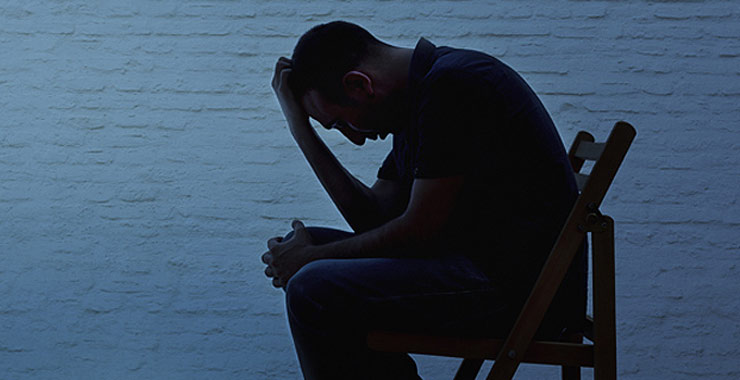HEALTH
Healing From Within – How a Depression Therapist Can Help You Reclaim Your Life

Depression is a common mental health condition that can be treated with psychotherapy. When choosing a therapist, choosing someone you feel comfortable opening up to is important. Choosing a therapist that offers your preferred type of treatment is also essential.
Interpersonal therapy, or IPT, can help you improve your relationships and resolve conflict. This type of therapy can also be used to treat depression resulting from unresolved childhood traumas.
Cognitive behavioral therapy
Cognitive behavioral therapy is a short-term, talk-based approach to treating depression. It combines cognitive therapy, which examines how you think, with behavioral therapy, which reviews your actions. The goal is to identify maladaptive thoughts, feelings, and behaviors that contribute to depression.
It is based on the theory that how you interpret situations influences your emotions and behaviors. It is a widely used method for treating depression. In addition to CBT, several other types of therapy can help you reclaim your life.
If you are struggling with depression, finding a good depression therapist in NYC is essential for getting better. A great way to find a therapist, and your primary care doctor may be able to provide you with a referral. Additionally, national mental health organizations have lists of licensed credentialed providers. Depending on your specific situation, the kind of therapy that works best for you will be decided by your therapist. Several different types of short-term talk therapy have been proven effective for treating depression, including cognitive behavioral therapy, interpersonal therapy, behavioral activation, and psychodynamic psychotherapy.
EMDR therapy
EMDR is an evidence-based therapy that has been shown to work well for conditions related to trauma. It is a structured, eight-phase treatment that begins with history-taking. It can also include the identification of specific memories or incidents that trigger emotional distress. It can also focus on developing self-soothing techniques for use during processing.
During the desensitization phase, the therapist guides you through bilateral stimulation exercises. These can take the form of touch, sounds, or eye movements and are intended to assist in reprocessing the unfavorable feelings, thoughts, and physical experiences connected to the memory. This process allows the memory to become less disturbing and more adaptive.
During installation, you identify and rate an optimistic belief that will replace the negative one. The therapist then helps you install the positive opinion via bilateral stimulation. Once the negative memory is fully reprocessed, your symptoms should decrease to a point where they are no longer present or significantly lessened. According to the EMDR Network, most people who undergo EMDR treatment for test anxiety report that their symptoms have disappeared after three sessions of reprocessing.
Mindfulness
Mindfulness involves focusing on the present moment and accepting your thoughts and feelings without judging them. It also means noticing what you’re doing, where you are, and what is happening around you. It is an essential skill that can help you cope with depression and anxiety. It can even help you stay away from unhealthy habits like binge eating or smoking.
A mindfulness-based approach to coping with emotional distress has been shown to reduce symptoms of depression and PTSD. It can also improve your relationship with others and your ability to manage emotions. It has also been linked to increased compassion and altruism. Research shows that meditation increases the brain regions responsible for social cognition and emotion regulation.
Practicing mindfulness can be difficult, especially at first. However, it would be best if you remembered that it’s a journey and that being patient with yourself is essential. Moreover, it would help if you practiced mindfulness with the help of a therapist. The therapist will help you learn the technique and develop healthy coping skills. This is possible through online therapy, which offers flexible schedules and privacy.
Dialectical behavioral therapy
Dialectical behavioral therapy (DBT) was developed in the 1990s to treat borderline personality disorder (BPD). It combines elements of cognitive-behavioral psychotherapy with mindfulness and acceptance-based techniques. In DBT, therapists teach patients skills to deal with intense emotions and improve relationships. They also learn to recognize and change negative patterns of behavior. Patients often have access to a therapist between sessions for support and guidance on using their new real-life skills.
During a DBT session in NYC, your therapist will ask you to keep a diary of your feelings and actions. You will then bring this diary with you to your next session. This is an integral part of DBT because it helps you identify problematic behaviors and track your progress in changing them. It can also help you understand which emotions are more challenging to control and how to avoid impulsive behavior.
DBT comprises several skills: mindfulness, distress tolerance, and interpersonal effectiveness. These skills can help you better regulate your emotions, improve your relationship, and withstand distress without acting impulsively. It’s also a valuable tool for treating PTSD and overcoming other emotional extremes.
Group therapy
Group therapy involves multiple people in a session with a mental health professional and can be an effective treatment for depression. It can also help you build self-esteem and improve your relationships as you learn to communicate better and listen to others’ perspectives.
In group counseling, you may feel vulnerable and nervous about expressing your feelings to strangers. Still, most people find opening up in a supportive environment more rewarding than anticipated. In addition to providing a support system, group members can act as role models and offer advice based on their own experiences. It is common for members to test each other’s boundaries during sessions, leading to constructive confrontation and vocalization of issues.
A good depression therapist will be familiar with a variety of treatments and techniques, including cognitive behavioral therapy (CBT) and interpersonal psychotherapy. They will also be able to identify your specific symptoms and determine the best approach for you. They might recommend an individual or group therapy session or a combination. Individual therapy sessions allow you to build a strong relationship with one person and may be better suited for those who prefer more privacy.
HEALTH
Doctorhub360.com Neurological Diseases: Advanced Care with AI & Telemedicine

Doctorhub360.com is an advanced healthcare platform designed to support patients suffering from neurological diseases. It uses modern technology to provide medical consultations, symptom tracking, and valuable educational resources. The platform aims to improve patient care and make neurological healthcare more accessible.
Neurological diseases affect the brain, spinal cord, and nerves, leading to severe health complications. Early detection and treatment can significantly improve a patient’s quality of life. Doctorhub360.com neurological diseases platform offers solutions that help in timely diagnosis and management.
With an increasing number of neurological disorders worldwide, there is a growing need for specialized healthcare services. Many patients struggle to access neurologists due to location constraints. Doctorhub360.com helps bridge this gap by providing remote consultations with experts.
The platform is also beneficial for caregivers and family members. It provides guidance on how to care for patients suffering from neurological conditions, ensuring they receive the best possible support.
Understanding Neurological Diseases
Neurological diseases are disorders that impact the brain, nerves, and spinal cord. These conditions can cause symptoms such as muscle weakness, tremors, cognitive decline, and loss of coordination. Some diseases progress slowly, while others cause sudden health crises.
There are several types of neurological disorders, each affecting individuals differently. Some common ones include:
- Alzheimer’s Disease – Causes memory loss and cognitive decline, mostly affecting older adults.
- Parkinson’s Disease – Leads to tremors, muscle stiffness, and slow movements.
- Epilepsy – A condition characterized by frequent seizures due to abnormal brain activity.
- Multiple Sclerosis (MS) – Affects the central nervous system, leading to mobility and vision problems.
- Migraine – A severe headache disorder with nausea and sensitivity to light and sound.
Many neurological conditions have no cure, but treatments can help manage symptoms. Early intervention is essential to slow down disease progression. Doctorhub360.com neurological diseases resources help patients learn about their condition and find appropriate treatments.
Patients need ongoing monitoring and lifestyle adjustments to cope with neurological diseases. Regular consultations with healthcare professionals and tracking symptoms help in better disease management.
How Doctorhub360.com Helps in Neurological Care
Doctorhub360.com provides remote medical consultations for neurological diseases. Patients can connect with neurologists through online appointments, eliminating the need to travel. This feature is especially useful for people living in remote areas.
The platform offers extensive educational resources. Patients and caregivers can access articles, videos, and research-based guides on neurological disorders. These resources help individuals understand symptoms, treatment options, and lifestyle changes.
For effective treatment, tracking symptoms is crucial. Doctorhub360.com offers digital tools that allow patients to log daily experiences. This data helps doctors analyze symptoms over time and adjust treatments accordingly.
Support from others facing similar challenges can be helpful. The platform provides access to community forums where patients and caregivers can share experiences. These support groups offer emotional encouragement and practical advice.
Doctorhub360.com neurological diseases services also incorporate AI-driven recommendations. Artificial intelligence analyzes symptoms and provides personalized health tips, medication reminders, and alerts for potential disease progression.
Benefits of Using Doctorhub360.com
One of the main advantages of Doctorhub360.com is accessibility. Many patients face difficulties visiting hospitals due to mobility issues or long distances. With telemedicine services, they can consult specialists from home.
The platform is cost-effective compared to traditional in-person neurology consultations. It reduces expenses related to hospital visits, travel, and accommodation, making healthcare more affordable.
Doctorhub360.com neurological diseases management tools provide personalized care. AI-driven symptom tracking helps detect changes in a patient’s condition early. This proactive approach improves treatment outcomes.
For caregivers, the platform offers essential guidance on patient care. Neurological disorders often require long-term support, and having the right information helps in managing daily challenges.
Additionally, the platform fosters a supportive community. Patients can join discussion groups, seek advice, and find encouragement from others facing similar conditions. This peer support plays a significant role in improving mental well-being.
Future of Neurological Healthcare with Technology
Technology is transforming the way neurological diseases are diagnosed and treated. AI and machine learning are now being used to predict disease progression and suggest treatment plans. These advancements can help in early detection and better patient management.
Wearable health devices are becoming popular for monitoring brain activity. These devices track neurological signals and detect abnormalities, providing real-time data to doctors. Such innovations make it easier to manage diseases like epilepsy and Parkinson’s.
Doctorhub360.com continues to integrate new technologies into its platform. AI-based recommendations, telehealth solutions, and data-driven healthcare approaches improve neurological care. These advancements ensure that patients receive the best possible treatment.
Hospitals and research institutions are collaborating with online platforms to enhance neurological healthcare. These partnerships allow doctors to share knowledge, access better treatment protocols, and improve patient outcomes.
The future of neurological healthcare is evolving with digital health solutions. Platforms like Doctorhub360.com neurological diseases services are playing a crucial role in making advanced care more accessible to patients worldwide.
Conclusion
Doctorhub360.com provides an innovative approach to managing neurological diseases. By integrating telemedicine, digital health tools, and AI-based solutions, the platform improves access to specialized care.
Understanding neurological diseases is essential for effective management. Patients, caregivers, and healthcare providers can benefit from the educational materials available on Doctorhub360.com. These resources simplify complex medical information, making it easier to understand.
Remote healthcare is becoming more important in modern medicine. Doctorhub360.com neurological diseases services offer convenient, affordable, and personalized solutions for patients struggling with neurological disorders.
As technology continues to advance, online healthcare platforms will play a bigger role in neurological care. Doctorhub360.com remains at the forefront of this transformation, providing reliable and innovative services.
By combining expert medical advice with AI-driven tools, Doctorhub360.com is revolutionizing neurological healthcare. Patients now have better access to information, treatment options, and community support, helping them lead healthier lives.
FAQs
What is Doctorhub360.com, and how does it help with neurological diseases?
Doctorhub360.com is an online healthcare platform that provides telemedicine, symptom tracking, and educational resources for neurological disease management.
Can I consult a neurologist through Doctorhub360.com?
Yes, the platform offers remote consultations with neurology specialists, allowing patients to receive expert advice from the comfort of their homes.
Does Doctorhub360.com provide symptom tracking tools for neurological diseases?
Yes, it includes digital tools for logging symptoms, helping doctors analyze disease progression and adjust treatments accordingly.
Is Doctorhub360.com suitable for caregivers of neurological patients?
Absolutely, it provides caregiving guides, educational resources, and support forums to help caregivers manage patient needs effectively.
How does AI technology improve neurological disease management on Doctorhub360.com?
AI analyzes patient data, offers personalized health recommendations, and alerts users to potential symptom changes for better treatment planning.
HEALTH
Prostavive Colibrim: A Natural Prostate Health Supplement

Prostate health is essential for men, especially as they age. Many men experience urinary issues and discomfort due to prostate enlargement. This condition can cause frequent urination, weak urine flow, and other discomforts.
Prostavive Colibrim is a dietary supplement designed to support prostate health naturally. It contains a blend of powerful ingredients that help reduce inflammation and improve urinary function. Many men turn to natural supplements like this to avoid invasive medical procedures.
By maintaining a healthy prostate, men can experience better urinary control and improved quality of life. Prostavive Colibrim aims to provide relief from common prostate-related problems. Regular use may help restore comfort and confidence.
What is Prostavive Colibrim?
Prostavive Colibrim is a supplement made with natural ingredients that support prostate health. It is specifically formulated for men who experience urinary discomfort and prostate enlargement. The supplement works by reducing inflammation and improving urinary flow.
Unlike prescription medications, Prostavive Colibrim is made from herbal extracts, vitamins, and minerals. It is designed to be a safe, non-invasive solution for prostate health. The supplement is available without a prescription, making it easily accessible.
Many users choose Prostavive Colibrim as a natural alternative to traditional treatments. It is commonly used to reduce frequent nighttime urination and other prostate-related symptoms. By using it consistently, men may notice improvements in their overall well-being.
Key Ingredients and Their Benefits
Prostavive Colibrim contains several key ingredients known for their benefits to prostate health. One of the main ingredients is Saw Palmetto Extract, which helps reduce prostate swelling and improves urinary flow. This herb is widely used in prostate supplements.
Another important ingredient is Beta-Sitosterol, a plant-based compound that improves urinary symptoms related to an enlarged prostate. Studies suggest that it helps reduce frequent urination and supports normal urine flow.
Pygeum Africanum is a tree bark extract that has anti-inflammatory properties. It helps improve bladder function and reduces discomfort during urination. Zinc is also included in the formula, as it plays a crucial role in prostate health and immune function.
Pumpkin Seed Extract is another powerful ingredient in Prostavive Colibrim. It is rich in antioxidants and essential nutrients that support prostate wellness. These ingredients work together to promote a healthy prostate and better urinary control.
How Does Prostavive Colibrim Work?
Prostavive Colibrim works by addressing the root causes of prostate discomfort. It helps reduce prostate swelling, which can relieve pressure on the bladder and improve urinary flow. This makes it easier for men to empty their bladder completely.
The supplement also has anti-inflammatory properties that may help reduce discomfort. By lowering inflammation, it can prevent further prostate enlargement and improve overall urinary health. This is particularly important for men experiencing frequent urination at night.
Another way Prostavive Colibrim works is by supporting hormone balance. Some ingredients help regulate DHT levels, a hormone linked to prostate growth. By managing hormone levels, the supplement may prevent further prostate enlargement.
With consistent use, Prostavive Colibrim may lead to better prostate function and fewer urinary problems. It is designed to be a long-term solution for men who want to maintain prostate health naturally.
Benefits of Using Prostavive Colibrim
One of the biggest benefits of Prostavive Colibrim is that it helps reduce frequent nighttime urination. Many men struggle with waking up multiple times at night to urinate, which affects their sleep quality. This supplement may help improve bladder control.
It also supports stronger urine flow, reducing the discomfort of weak or interrupted urination. This can make daily activities more comfortable and less stressful. A stronger urine flow means less straining and a more complete bladder emptying.
Another key benefit is its anti-inflammatory effect, which helps prevent prostate swelling from getting worse. By reducing inflammation, men may experience long-term relief from discomfort and pressure.
Since Prostavive Colibrim contains natural ingredients, it is considered a safe alternative to prescription medications. It provides a non-invasive option for men who want to manage prostate health without medical procedures.
Potential Side Effects and Precautions
Prostavive Colibrim is made from natural ingredients, so it is generally considered safe. Most users do not experience serious side effects when taking the supplement as directed. However, some people may have mild digestive discomfort.
In rare cases, some individuals may have allergic reactions to certain herbal extracts. If a person experiences any unusual symptoms, they should stop using the supplement and consult a doctor. It’s always important to check for possible allergies before trying a new supplement.
Men who are already taking prescription medications for prostate health should speak with a doctor before using Prostavive Colibrim. Some ingredients may interact with other medications. Consulting a healthcare provider ensures safe use.
Although Prostavive Colibrim is designed to be safe, proper dosage and consistency are key. Taking more than the recommended amount will not speed up results and may lead to unwanted side effects.
How to Use Prostavive Colibrim
The recommended dosage for Prostavive Colibrim is usually one or two capsules per day. It should be taken with water, preferably with a meal to enhance absorption. Following the correct dosage ensures the best possible results.
For optimal benefits, users should take the supplement consistently. Natural supplements work gradually, so it may take a few weeks to notice significant improvements. Skipping doses may slow down progress.
To maximize effectiveness, it is helpful to maintain a healthy lifestyle. Eating a balanced diet rich in fruits, vegetables, and lean proteins can support prostate health. Drinking enough water and avoiding excessive caffeine or alcohol may also help.
Regular check-ups with a doctor are still important, even when using natural supplements. A medical professional can monitor progress and provide additional guidance on maintaining prostate health.
Customer Reviews and Effectiveness
Many men who have used Prostavive Colibrim report positive improvements in their urinary health. They often mention fewer nighttime bathroom trips and better urine flow. Some users say they feel more comfortable throughout the day.

However, results can vary from person to person. Some men notice improvements within a few weeks, while others may take longer. The supplement works best when taken regularly and combined with a healthy lifestyle.
There are also some mixed reviews. While many people find relief, others may not experience the same level of benefit. This is common with natural supplements, as individual responses differ.
Overall, Prostavive Colibrim has received mostly positive feedback. Many users appreciate its natural formula and the fact that it does not have harsh side effects.
Where to Buy and Pricing
Prostavive Colibrim is available online through official websites and health supplement stores. Buying from the official website ensures authenticity and product quality. Some retailers may also sell it at discounted prices.
Prices vary depending on the package size. Many sellers offer discounts for bulk purchases, which can help users save money. Some brands also provide a money-back guarantee if users are not satisfied.
When purchasing supplements online, it is important to check for customer reviews and official seller information. This helps avoid counterfeit products that may not be effective.
For the best deals, users can look for special promotions or subscription options. Some websites offer automatic shipments to ensure users never run out of their supply.
HEALTH
Vicki Naas Frederick MD: Advancing Medical Care and Community Development

Vicki Naas is a well-known professional and community member in Frederick, Maryland. She has contributed to various fields, including healthcare and business leadership.
Her work focuses on improving healthcare services and economic growth in the region. She has played a significant role in expanding opportunities for residents.
Beyond her professional achievements, she is recognized for her community involvement. She supports nonprofit organizations and works toward educational and social betterment.
Her commitment to innovation and leadership has made a lasting impact on Frederick. The name vicki naas frederick md is associated with progress and dedication in both business and healthcare.
Who is Vicki Naas – Frederick, MD?
Vicki Naas is a well-known professional in Frederick, Maryland, recognized for her contributions to healthcare, business, and community development. She has played a significant role in improving healthcare access, promoting economic growth, and supporting local initiatives that benefit residents.
Her work spans multiple fields, including serving as a family physician, leading a tech startup, and advocating for better healthcare policies. The name vicki naas frederick md is associated with dedication, leadership, and a commitment to making a positive impact in the community.
Background and Personal Life
Vicki Naas has deep roots in Frederick, Maryland. She has lived in the area for many years and is a homeowner on Waterford Drive.
She was born on November 27, 1952, and has Scandinavian heritage. Her background has influenced her strong work ethic and commitment to excellence.
Frederick has been her primary residence, where she has established strong community connections. Her involvement in local events and activities shows her dedication to the town.
Her financial stability reflects her steady career growth. Estimates suggest her net worth is between $50,000 and $99,999, with an annual income of approximately $55,000 to $59,999.
Professional Career
Vicki Naas has made a mark as a family physician in Frederick, MD. She specializes in preventive healthcare and chronic disease management.
Her approach to patient care is focused on compassion and personalized treatment. She believes in building strong relationships with her patients to ensure better health outcomes.
She has been actively involved in promoting telemedicine services. This has improved healthcare accessibility for many individuals in Frederick and beyond.
Her leadership in the medical field has helped shape modern healthcare practices. She advocates for better policies and technological advancements in the industry.
Business and Leadership Roles
In addition to her medical career, Vicki Naas has held leadership roles in business. She served as the CEO of a tech startup, bringing innovative solutions to Frederick’s economy.
Her initiatives have contributed to job creation and local economic development. She has supported businesses in adapting to new market trends and technology.
She focuses on mentoring young professionals and fostering inclusive workplaces. Her leadership style emphasizes collaboration and empowerment.
The growth of businesses under her guidance has strengthened Frederick’s workforce. She continues to support strategic initiatives that boost economic stability.
Table: Economic Contributions of Vicki Naas
| Category | Impact |
| Job Creation | Expanded employment opportunities |
| Business Growth | Helped startups gain stability |
| Economic Policies | Advocated for improved strategies |
| Workforce Development | Mentored young professionals |
Community Involvement
Vicki Naas is actively involved in various community projects. She supports educational initiatives that provide better learning opportunities for children.
She volunteers with nonprofit organizations aimed at reducing poverty. Her efforts include funding and supporting community-based development programs.
She also advocates for healthcare access for underserved populations. Her work has improved medical services for low-income families in Frederick.
Through partnerships with local businesses, she has helped create pathways for career growth. Her goal is to uplift the community through education and job opportunities.
Financial Overview
Her financial standing reflects her steady career growth and contributions. She has invested in real estate and local businesses in Frederick.
Her estimated annual income is between $55,000 and $59,999. This allows her to maintain a comfortable lifestyle while contributing to the community.
Her net worth ranges between $50,000 and $99,999. This estimate includes property ownership and business investments.
She strategically manages her finances to support long-term projects. Her investments aim to create sustainable economic opportunities in Frederick.
Legacy and Impact
Vicki Naas has built a strong legacy in both the healthcare and business sectors. Her contributions have shaped Frederick’s economic and social landscape.
Her dedication to inclusivity and empowerment has left a lasting impression. She believes in fostering leadership skills among young professionals.
Her name is associated with innovation, healthcare advancements, and economic progress. The impact of vicki naas frederick md continues to inspire many in the community.
Through her work, she has set a foundation for future development. Her commitment ensures that Frederick remains a hub for growth and success.
Conclusion
Vicki Naas has made a lasting impact on Frederick, Maryland, through her dedication to healthcare, business leadership, and community service. Her efforts in patient care, job creation, and economic development have improved the lives of many residents. She continues to advocate for better healthcare access and supports initiatives that promote growth and stability.
The name vicki naas frederick md is recognized for its contributions to progress and innovation. Whether through her medical expertise, business leadership, or philanthropic efforts, she remains a key figure in the community. Her legacy reflects a commitment to positive change, inspiring others to follow in her footsteps.
Her influence extends beyond her professional roles, as she remains actively engaged in making Frederick a better place. Through her ongoing efforts, vicki naas frederick md continues to be a driving force for development and success in the region.
FAQs
Who is Vicki Naas in Frederick, MD?
Vicki Naas is a respected professional known for her work in healthcare, business leadership, and community service in Frederick, Maryland.
What is Vicki Naas’s professional background?
She is a family physician specializing in preventive healthcare and chronic disease management, along with experience in business leadership.
How has Vicki Naas contributed to Frederick’s economy?
She has supported job creation, led a tech startup, and helped businesses grow through innovation and mentorship.
What community initiatives is Vicki Naas involved in?
She volunteers with nonprofits, supports education programs, and advocates for better healthcare access in underserved areas.
Why is Vicki Naas well-known in Frederick, MD?
Her dedication to healthcare, economic development, and community improvement has made her a key figure in Frederick.
-

 L,IFESTYLE2 years ago
L,IFESTYLE2 years agoExploring the Heart of Iowa City Downtown District
-

 TECH2 years ago
TECH2 years agoMaximizing Your Pixel 6a’s Wireless Charging Performance: Tips and Tricks
-

 SPORTS3 years ago
SPORTS3 years agoclub america vs deportivo toluca f.c. timeline
-
CRYPTO2 years ago
Features of Liquidity Providers and Differences Between Them
-

 BUSINESS2 years ago
BUSINESS2 years agoThe Evolution of the Patagonia Logo: A Look at the Brand’s Iconic Emblem
-

 TECH3 years ago
TECH3 years agoBuild Your Email Marketing Contact
-

 TECH3 years ago
TECH3 years ago6 Ways AI Will Change the Future of Marketing
-

 HEALTH8 months ago
HEALTH8 months agoProstavive Colibrim: A Natural Prostate Health Supplement









